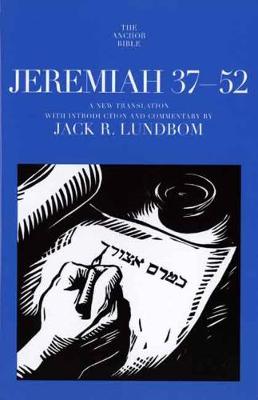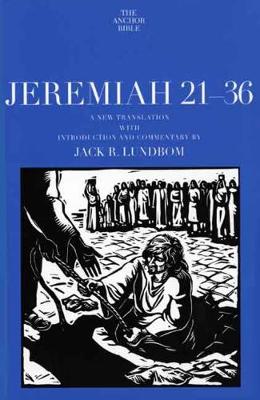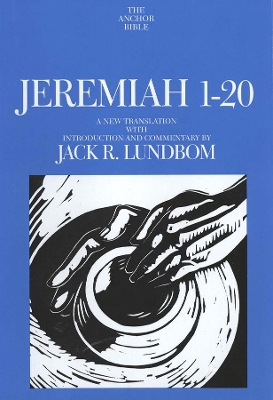Anchor Bible Commentary (YUP)
3 total works
This final book of the three-volume Anchor Bible Commentary gives us translation and commentary on the concluding sixteen chapters of Jeremiah. Here, during Judah's darkest days, when nationhood came to an end, Jeremiah with his people confronted the consequences of the nation's sin, while at the same time reconstituting a remnant community with hopes to give Israel a future. Jeremiah preached that Israel's God, Yahweh, was calling to account every nation on the Earth, even the nation chosen as his own. For the latter, Jeremiah was cast into a pit and left to die, only to be rescued by an Ethiopian eunuch. But the large collection of Foreign Nation Oracles in the book shows that other nations too were made to drink the cup of divine wrath, swollen as they were by wickedness, arrogant pride, and trust in their own gods. Yet the prophet who thundered Yahweh's judgment was also the one who gave Israel's remnant a hope for the future, expressed climactically in a new and eternal covenant for future days. Here too is the only report in the Bible of an accredited scribe writing up a scroll of oracles for public reading at the Temple.
This magisterial work of scholarship is sure to be essential to any biblical studies curriculum. Jeremiah 37-52 draws on the best biblical scholarship to further our understanding of this preeminent prophet and his message to the world.
This magisterial work of scholarship is sure to be essential to any biblical studies curriculum. Jeremiah 21-36 draws on the best biblical scholarship to further our understanding of this preeminent prophet and his message to the world.
Jeremiah, long considered one of the most colorful of the ancient Israelite prophets, comes to life in Jack R. Lundbom's Jeremiah 1-20. From his boyhood call to prophecy in 627 b.c.e., which Jeremiah tried to refuse, to his scathing judgments against the sins and hypocrisy of the people of Israel, Jeremiah charged through life with passion and emotion. He saw his fellow Israelites abandon their one true God, and witnessed the predictable outcome of their disregard for God's word - their tragic fall to the Babylonians.
The first book of a three-volume Anchor Bible commentary, Jack R. Lundbom's eagerly awaited exegesis of Jeremiah investigates the opening twenty chapters of this Old Testament giant. With considerable skill and erudition, Lundbom leads modern readers through this prophet's often mysterious oracles, judgments, and visions. He quickly dispels the notion that the life and words of a seventh-century b.c.e. Israelite prophet can have no relevance for the contemporary reader. Clearly, Jeremiah was every bit as concerned as we are with issues like terrorism, hypocrisy, environmental pollution, and social justice.
This impressive work of scholarship, essential to any biblical studies curriculum, replaces John Bright's landmark Anchor Bible commentary on Jeremiah. Like its predecessor, Jeremiah 1-20 draws on the best biblical scholarship to further our understanding of the weeping prophet and his message to the world.


